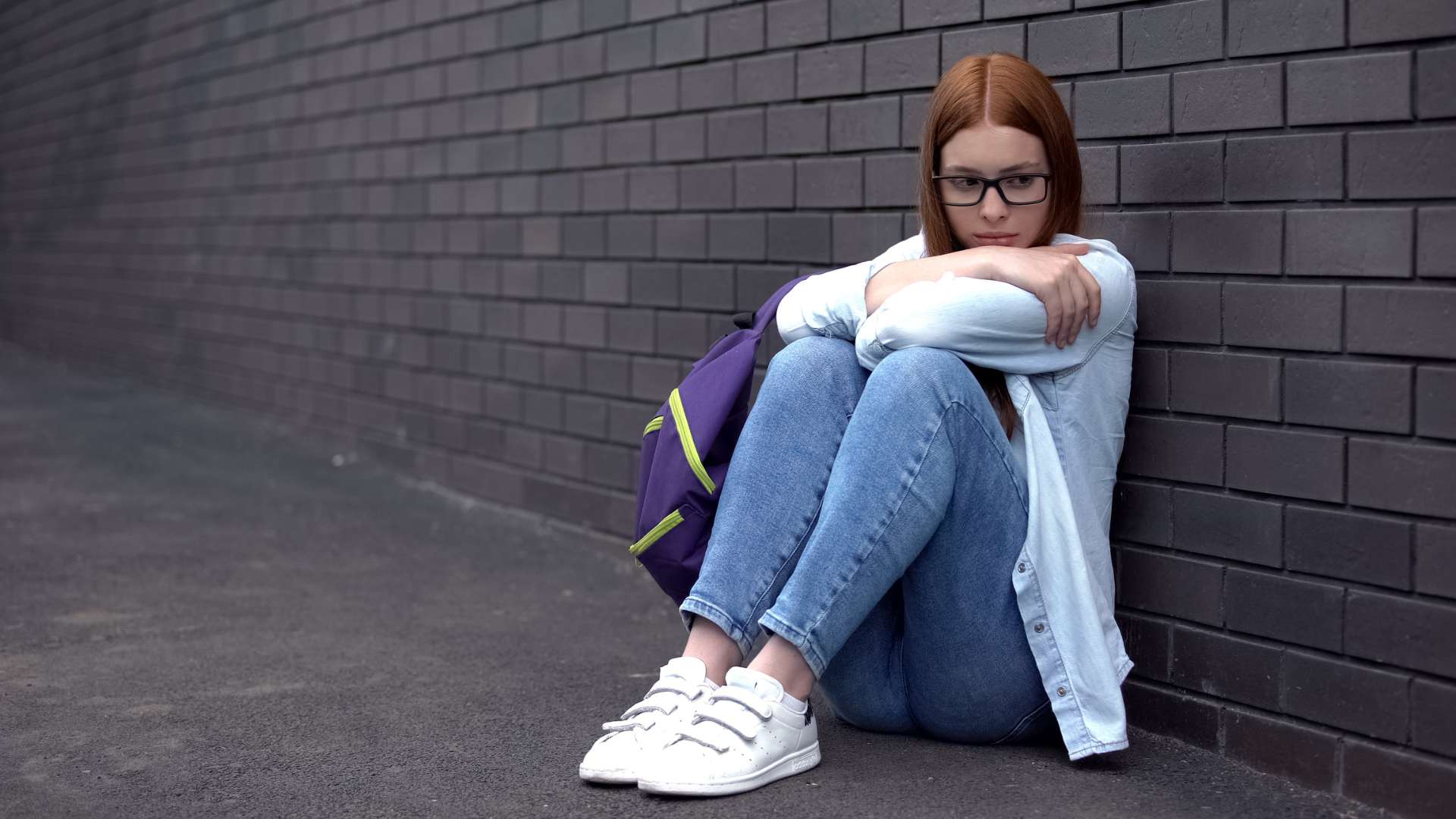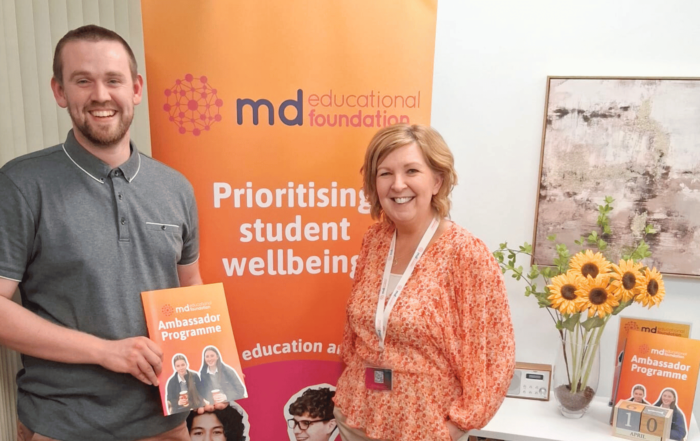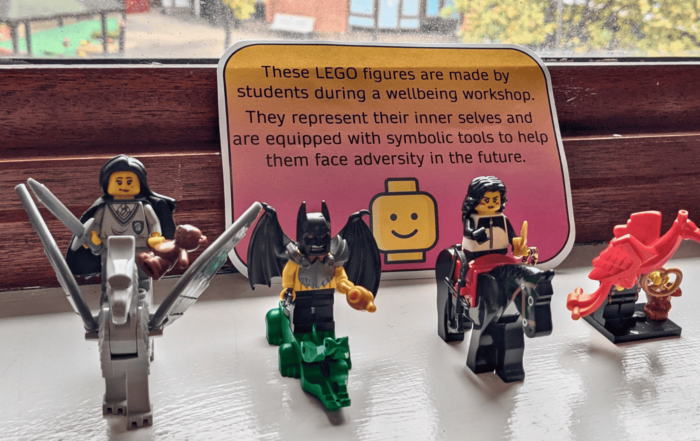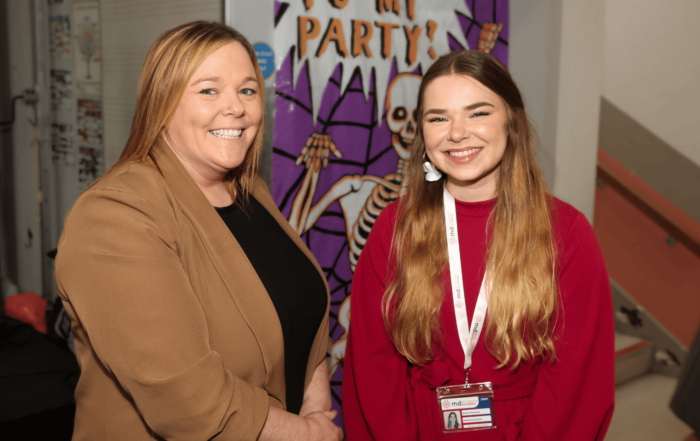Loneliness Awareness Week is a campaign, hosted by the Marmalade Trust and it takes place annually in June. The campaign is dedicated to shedding light on the profound impact of loneliness and it’s a vital reminder that human connection is a fundamental need for us all.
Loneliness is a common emotion for most – around 1 in 20 (6%) of adults reported feeling lonely always or often, according to Office for National Statistics (ONS). How you feel the feelings of loneliness is up to the individual and everyone will experience it differently. Some might feel like they lack a sense of community around them as they don’t feel a sense of belonging to any specific group. Some others might feel lonely due to the fact that they don’t have time to meet with their loved ones every day. Common mistake is to think that to be lonely you have to live alone and not have any loved ones around you, but even people with tons of friends and social contact can feel lonely. Often times we feel lonely because we don’t feel like the people around us understand us or care for us.
Loneliness alone is not a mental health problem but it can definitely have a negative effect on mental health. This can eventually turn into a vicious cycle – as Mind put it “Feeling lonely has damaged my mental health and my mental health has made me lonely“.
How does loneliness affect young people?
Young people are at a high risk of feeling lonely. According to a survey carried out by the BBC Radio 4, 40% of respondents aged 16-24 reported feeling lonely often or very often. Another survey published by the Office for National Statistics shows that areas with a higher concentration of younger people (aged 16-24) tended to have higher rates of loneliness. These statistics prove that young people tend to suffer from loneliness regardless of the opportunity to join different communities within the educational settings.
Loneliness can have a high impact on young people’s lives and their wellbeing. For example, it can bring problems in their capabilities to make connections, decrease their self-esteem and affect their academic performance. Long-term, these consequences from young people feeling lonely, can lead to mental health problems as their general state of wellbeing has decreased.
Most young people spend most of their time during the week in school, so there are many opportunities to support them and help them feel less lonely.

40% of respondents aged 16-24 reported feeling lonely often or very often
How to stay connected with students?
It is crucial to address and support young people experiencing loneliness to prevent these negative consequences. Providing them with opportunities for social connection, fostering a supportive environment, and promoting open discussions around mental health and loneliness can help decrease the impact of loneliness and improve their overall wellbeing. Here are 5 tips on how to support and prevent young people from feeling lonely:
- Inclusive communities: Promote a welcoming and inclusive school culture where diversity is celebrated and all students feel accepted and valued. Encourage peer support and kindness by organising activities that promote collaboration, teamwork, and empathy. Implement anti-bullying measures and create a zero-tolerance policy for any form of exclusion or mistreatment.
- Raise awareness: Conduct workshops or awareness campaigns on loneliness, mental health, and the importance of social connections. Facilitate discussions about loneliness, providing students with a safe space to share their experiences and feelings without judgment. Provide students with useful resources to help with their feelings: Students can use online communities, like Side by Side, to listen, share and be heard by a community that shares the same experiences.
- Safe spaces: Designate quiet spaces or relaxation areas where students can retreat during breaks or free time to engage in self-reflection, mindfulness activities, or simply find relaxation. Establish support networks, such as student wellness centres, where students can seek guidance from trained professionals in a confidential and non-judgmental environment.
- Social engagement: Organise social events, clubs, or extracurricular activities that encourage participation and provide opportunities for students to meet and interact with others who share similar interests. Promote volunteering or community service initiatives, as they can provide students with a sense of purpose, connection, and the opportunity to make a positive impact on others’ lives.
- Supportive network: Ensure that students have access to supportive adults, such as teachers, wellbeing and mental health professionals or mentors, who can provide guidance, listen actively, and offer assistance when needed.
It is important to keep in mind that each student’s experience with loneliness may be unique, so it’s crucial to approach their needs with empathy, patience, and individualised support. By supporting students with feelings of loneliness from the beginning, we might be able to decrease the negative effects on their mental health and wellbeing. By creating a nurturing and inclusive environment, fostering connections, and providing resources, you can play a significant role in helping students overcome loneliness and thrive socially and emotionally.
How can mdeducational foundation prevent loneliness amongst students?
mdeducational foundation’s mission is for all post-16 students to feel supported in every aspect of their wellbeing and know they’ll never have to face mental health problems alone. Our approach is to provide schools in the UK and Ireland with the opportunity of salary funding to place a dedicated wellbeing professional into their educational setting and promote the wellbeing of their students.
Our Wellbeing Leads create safe places for students to come and be listened to without judgement. They also offer one-to-one sessions to students who might need extra support or advice with their wellbeing. Wellbeing Leads can encourage and help students to make connections and feel more included if they are feeling lonely.
At the Wellbeing Hubs, post-16 students are welcome to come spend time in the way they desire. Wellbeing Hubs are welcoming spaces, where students can come to relax and calm down.
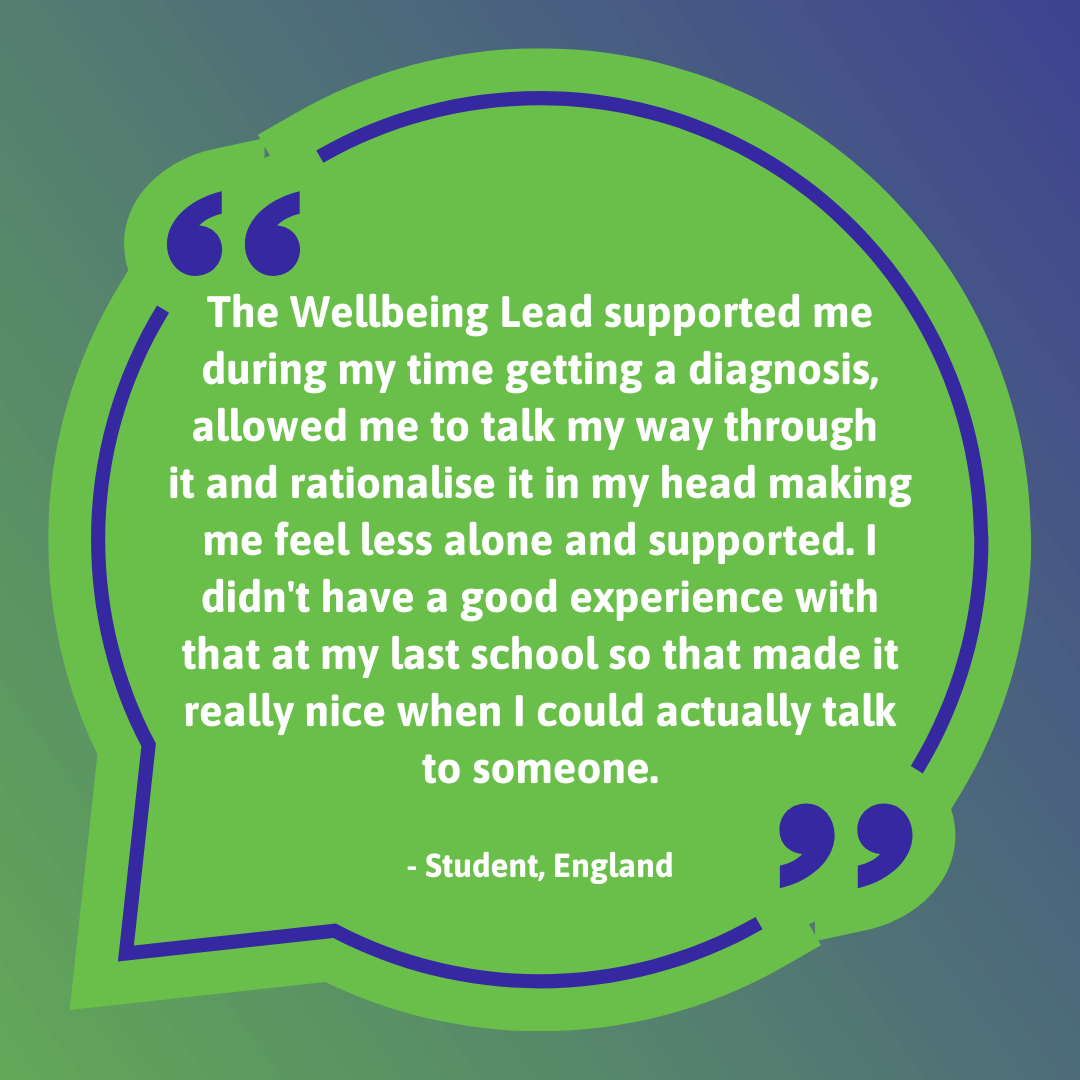
Join the conversation on social media using the hashtags #LonelinessAwarenessWeek and learn more about Loneliness Awareness Week by visiting lonelinessawarenessweek.org.
Prioritising student wellbeing through education and beyond
mdeducational foundation is a charity that provides a three-year salary-funded commitment to placing dedicated wellbeing professionals within educational settings, enabling them to kickstart their long-term wellbeing strategies.
Related posts
Championing student wellbeing: Meet James Sweeney, the first mdeducational foundation Ambassador
At mdeducational foundation, we’re committed to prioritising student wellbeing - and now, we’re continuing that mission by inviting members of our community to join us in championing a brighter future for young people. We’re [...]
6 mental health workshops to support and improve the wellbeing of young people in schools
Wellbeing workshops are a great way to promote positive wellbeing, encourage young people to look after their mental health and remove the stigma around mental health and wellbeing. In schools, workshops can provide many [...]
Shining the spotlight on student wellbeing: Meet Susanna Neuvonen, Marketing Executive at mdeducational foundation
At mdeducational foundation, we’re dedicated to prioritising student wellbeing by providing fully funded support in schools and educational settings across the UK and Ireland. Our mission is to ensure that all post-16 students feel supported [...]
